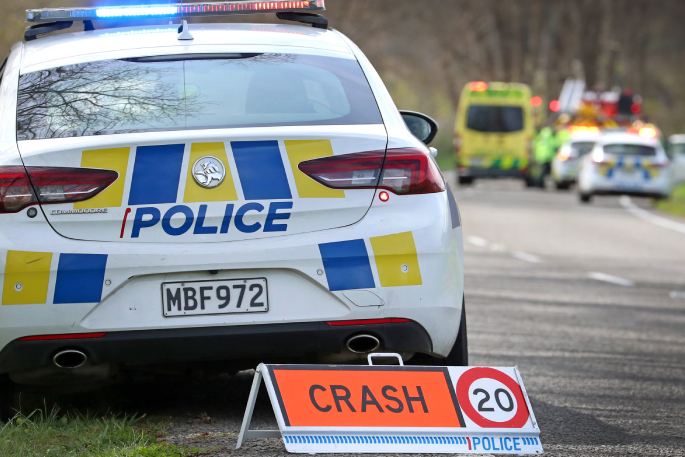The government says we'll have roadside drug testing in place by the end of the year. It's been a long time coming, but some say it could make roads even riskier.
The government's roadside drug testing scheme is a step closer to being rolled out, but drug experts are warning it could penalise people using prescription medicines and force them to use other, undetectable and potentially more dangerous substances.
Under the scheme, police will be able to randomly saliva-test drivers for drug use - with about 25 drugs, including cocaine, methamphetamine, and cannabis, in the mix.
Drivers who test positive in two tests will be immediately banned from driving for 12 hours.
Positive tests will be sent to a lab, and if drugs are found at levels that indicate recent use, drivers will be fined and issued demerit points.
"Ultimately, the message is very clear: we do not want people taking drugs and driving on our roads and killing people," said Transport Minister Simeon Brown.
"Our approach takes a much harder line... ensuring that motorists are safer, and that people impaired by drugs think twice before getting behind the wheel."
In 2022, alcohol and drugs were contributors to 200 fatal crashes on New Zealand roads.
But Amie Hayley, a senior research fellow at Swinburne University in Melbourne - where police have been testing drivers for THC, MDMA and methamphetamine - told The Detail it impacted drivers who used prescription medicines, including medicinal cannabis.
"Drivers who take medicinal cannabis for cancer or mental health or pain relief, are not willing to put themselves in a position where they are potentially going to be prosecuted for driving while taking a medication that is prescribed," she said.
"These people are often very conscious of not driving when they feel impaired by their substance but the legislation as it stands, it doesn't matter if you are impaired or not, it's only if the substance is in your system.
"People are self-excluding from driving or in other cases - and more dangerous for medical conditions - people will opt not to take their medical cannabis product and potentially take other substances that can be considered more impairing or heavier, so things like opiate-based pain relief, but that can otherwise safely pass a saliva test.
"So, people are opting for substances that might not be detected upon but can be more impairing, so you are getting a catch-22 where people might actually be putting themselves in more harm's way by excluding themselves from taking their medication as prescribed."
It is expected New Zealand police will undertake 50,000 oral fluid tests every year once the drug driving regime is rolled out. They will be able to randomly screen drivers for drugs, similar to how drink-driving is enforced.
-RNZ



3 comments
One sentence
Posted on 06-11-2024 08:54 | By DaveTheCynic
Should sink this, "it doesn't matter if you are impaired or not". Detectable traces are in no way impairment. Need a better test.
Drug testing
Posted on 06-11-2024 08:58 | By NZoldkiwi
Should have been introduced years ago in line with other countries. Don't know why previous governments have blocked it.
M.Mouse
Posted on 06-11-2024 17:56 | By M. Mouse
Maybe that’s the answer to all the red light runners🤷🏻
Leave a Comment
You must be logged in to make a comment.